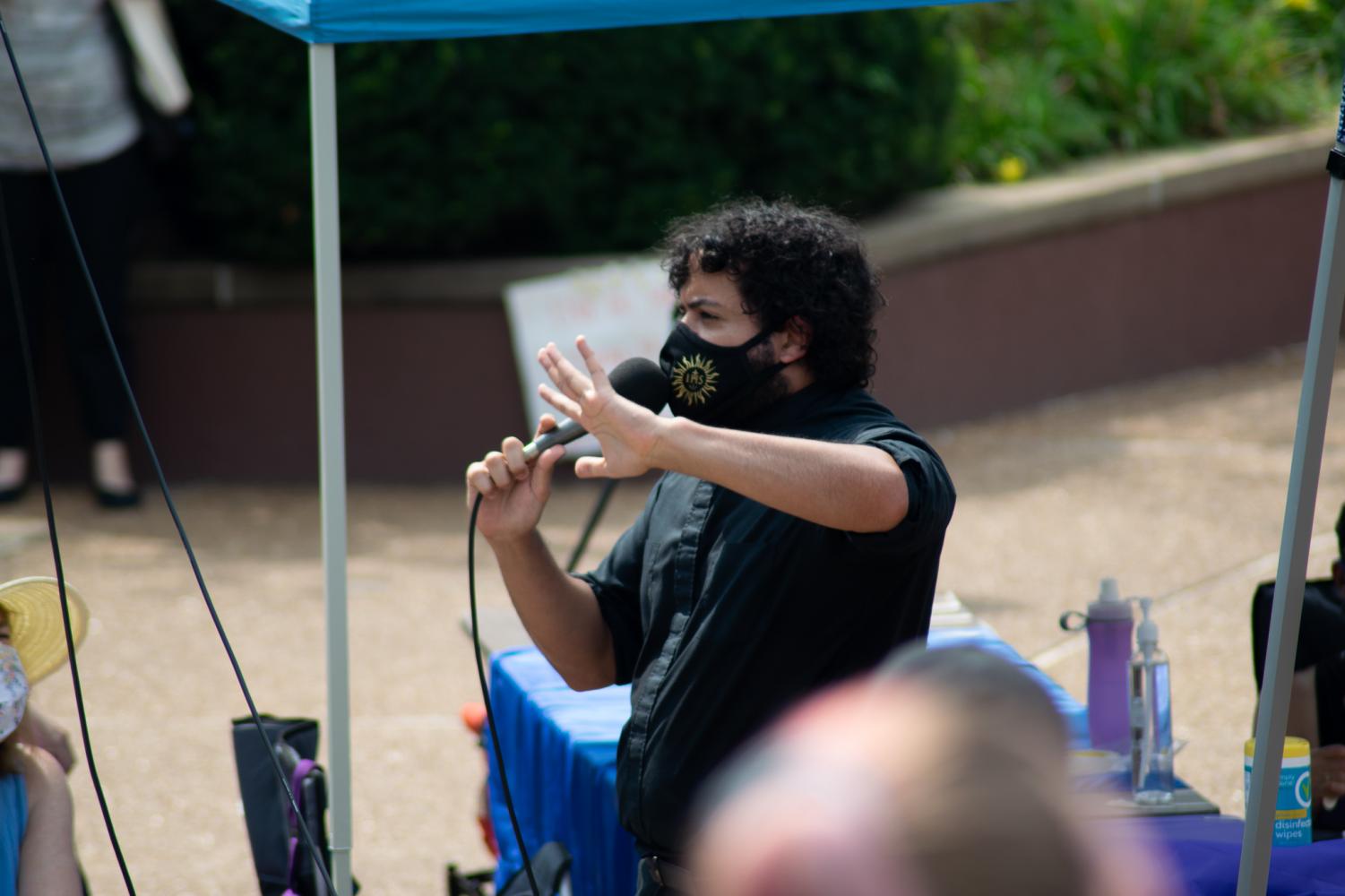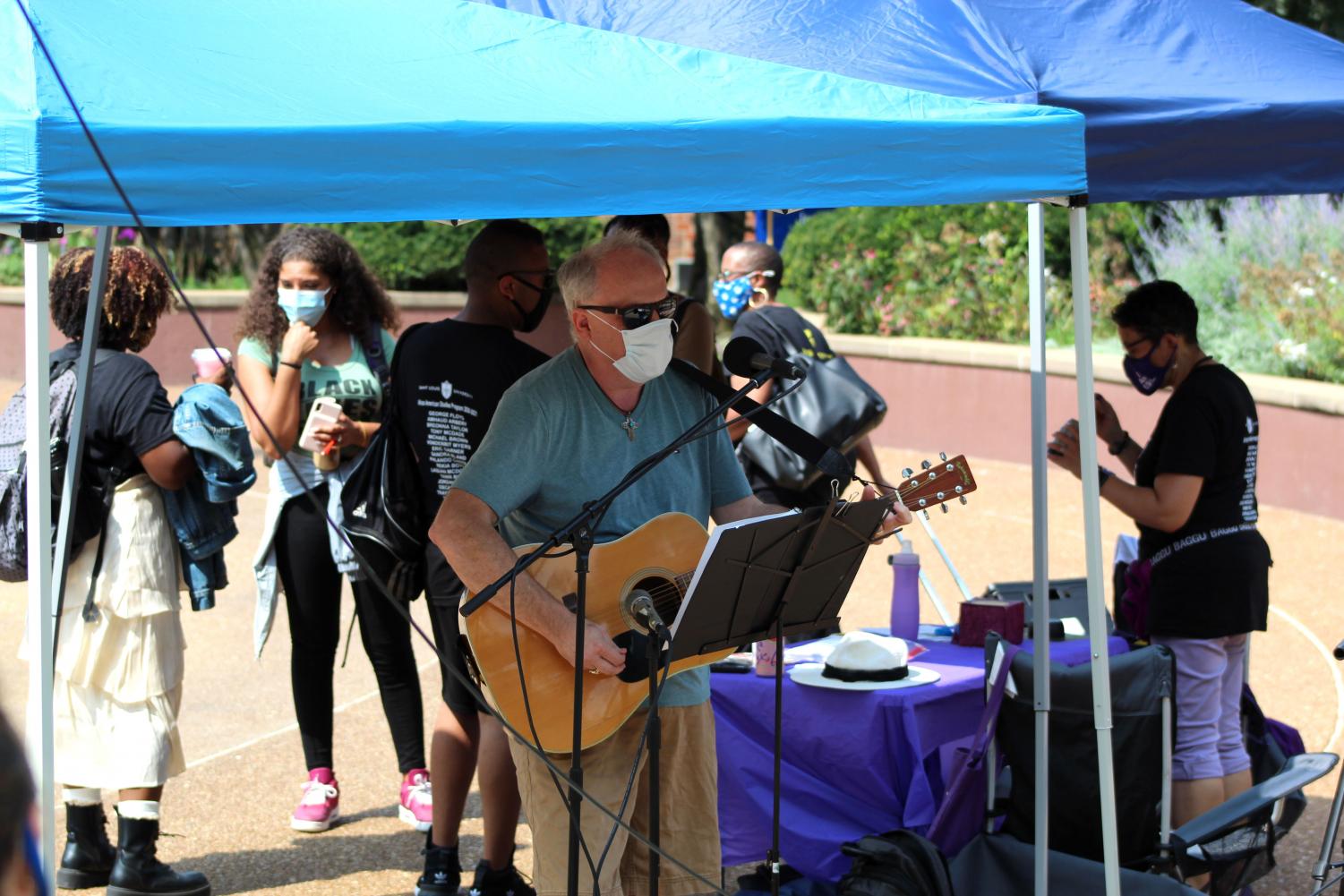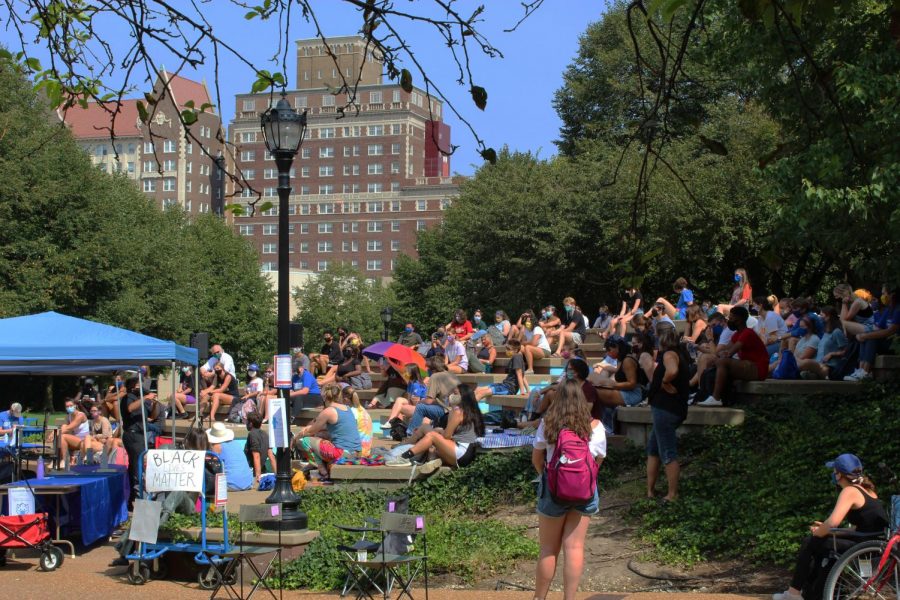#Scholar Strike on SLU’s Campus
Students gather around the clock tower as Jesuit Speakers, Billy Crichley-Menor and Ángel Flores talk and answer questions about racism.
“If someone can’t stand being uncomfortable for half an hour, I’m sorry, I’ve been uncomfortable my whole life!” This quote, from the Voices for Change speech, expressed one of the guiding ideals of the teach-in that occurred at the SLU clock tower, Tuesday and Wednesday, from 9 a.m. to 3 p.m. Students and faculty gathered near the clock tower, socially distanced, of course, to raise awareness and educate on the topics of racism and inequality. Organized by the College of Arts and Sciences Faculty Committee on Racial and Social Injustice, the event was part of a nationwide movement on U.S. campuses through Monday and Tuesday that began as #ScholarStrike on Twitter. What originally started as a walk-out turned into a teach-in, where teachers would use those days to educate their students about racial issues and discuss these issues.
Hundreds of students showed up to participate over the course of the teach-in. Students would come after class and stay for an hour, so there was a constant turnover of students. The interim Dean of the College of Arts and Sciences, Donna LaVoie, and the Dean of SLU Law, William Johnson, J.D., both gave speeches. Voices of Change, a new graduate school club, spoke about racism and how they want to advocate for equality at SLU. There were also two Jesuit Scholastics, Angel Flores, S.J., and Billy Critchley-Menor, S.J., who spoke about the Jesuit mission and its connection to anti-racist policies and equality. Professor of health care ethics, Harold Braswell Ph.D., spoke on his experiences, acknowledging the ways he has benefited from racism, and how racism can affect geriatric care in ways you may not expect.

In order to get an understanding of how students perceived the sit-in, the University News interviewed a number of students in attendance. Nicole Gallarde, a junior in the Social Work program, discussed how she felt about the teach-in.
“I enjoyed it. It was a nice medium between informative and letting others speak up with the open mic portion,” she said. However, when asked if she thought it would be effective Gallarde said, “Not as effective as it should be. I am aware that some professors canceled class for the sit-in, which I appreciate, but more faculty should have attended.”

Karla Scott, Ph.D., a professor in the communications department, was also interviewed for her thoughts on the teach-in. When asked about the timing of the event, Scott said: “I’ve been here for 26 years and there have never been any structural changes. The Clock Tower Accords were a community accord, not specifically SLU students. It is time to bring light to issues that need to be addressed.” Scott also mentioned that she could count the number of black professors on two hands, and that the teach-in hoped to raise awareness on issues like these, noting that it is part of the Jesuit mission to work towards racial justice and equality.
Scott also emphasized the role students must play in the pursuit of justice and racial equality. She stated the importance of taking classes about black culture and history, saying “Silence is violence. This is the first time in about 30 years that SLU is changing the common core. The students need to advocate for black stories to be included in the common core.”
The event was successful in its aims of education and dialogue, but whether it will actually lead to significant change depends on whether the student body will continue to advocate for justice and equality outside of the teach-in.
Your donation will support the student journalists of Saint Louis University.



